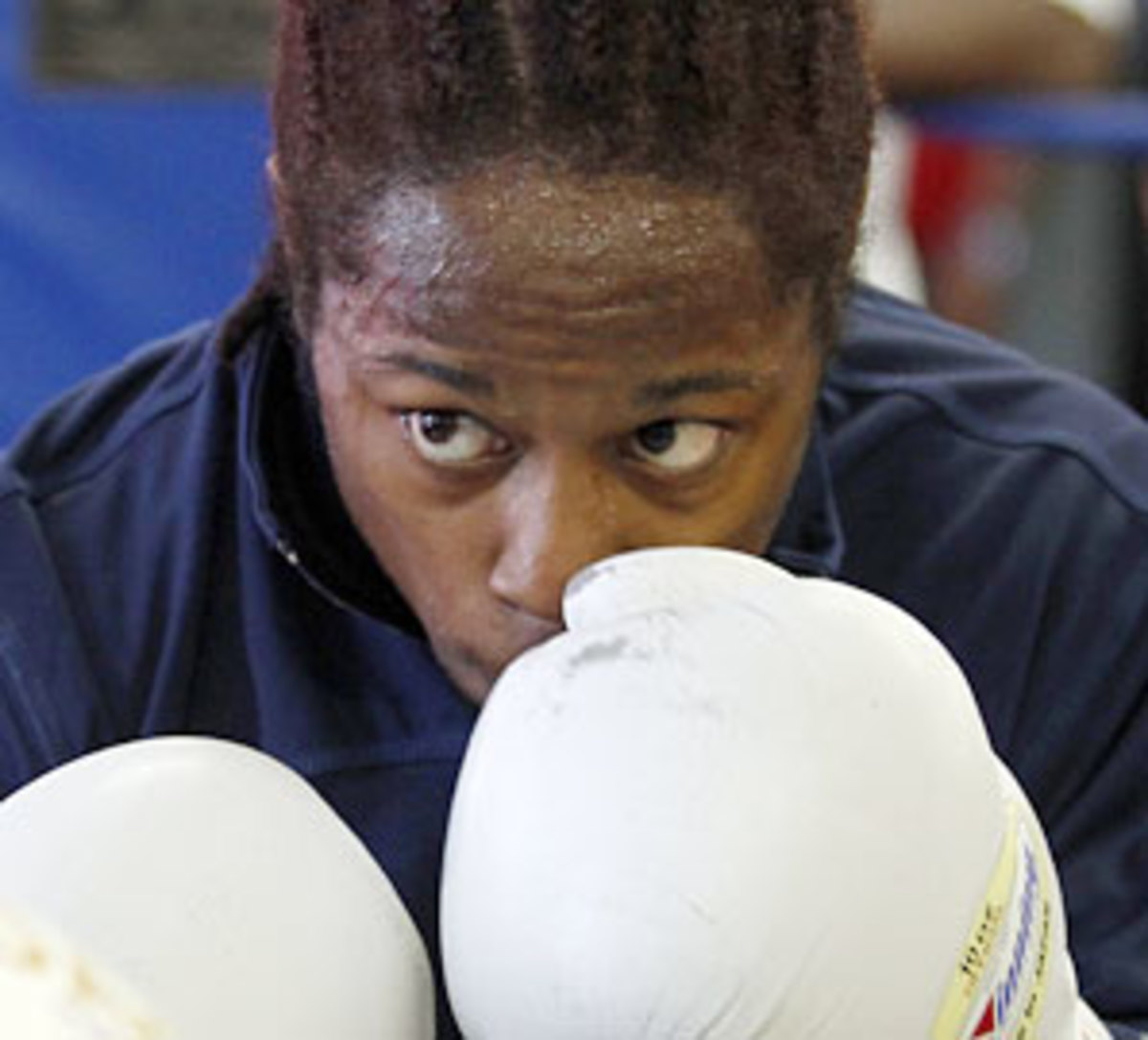Two-time U.S. Olympian Warren hopes there's a third time
Evidence is everywhere. Washington Nationals phenom Bryce Harper got his GED after two years of high school, played wooden-bat junior college ball for a season and then slipped through a loophole in MLB's draft rules.
Warriors center Jeremy Tyler opted out of high school after his junior year so he could earn some cash playing overseas before he was eligible for the NBA draft.
USC wide receiver Mike Williams tried to use the NFL's legal battle with Maurice Clarett over Clarett's eligibility to sneak into the 2004 draft.
Rau'shee Warren understands the temptation. He felt it in '04, when he was a 17-year old amateur boxer coming off his first Olympics. He felt it in '08, after his second stint with the U.S. squad. Both times Warren could have hired a manager, signed with a promoter and began a profitable pro career. Lived the good life. After growing up in a rough neighborhood of Cincinnati, after watching his two older brothers get sent to prison, after listening to the strain in his mother's voice as she tried desperately to shield him from the struggles at home while he was off competing in tournaments, Warren has earned it.
Yet Warren passed on all that. As a result, the 24-year-old can continue his quest to become the first three-time U.S. Olympic boxer when he takes on Shawn Simpson in the 114-pound flyweight final on Friday.
"I felt like if you always have a dream, you should chase it," Warren said. "Everybody has a dream of going to the Olympics and winning a gold medal. That's what I dream of: Winning a gold medal and putting it around my mom's neck. If I do that I can close my trophy case. That's the only thing I'm missing."
To be fair, Warren has had some nice perks. After the '08 Olympics, USA Boxing lured him back with a $7,000-per-month stipend. And the World Series of Boxing -- a fledgling league that, with the International Boxing Association's blessing, pays fighters a salary without jeopardizing their amateur eligibility -- paid Warren upwards of $30,000 last season. While the NCAA cracks down on athletes swapping their gear for tattoos and boosters slipping players a few hundred bucks, Warren has made a comfortable living.
Still, Warren's undeniable talent -- national coach Joe Zanders calls him the Muhammad Ali of amateur boxing -- likely means six-figure paydays are waiting for him in the pro ranks.
"I hate to say he's like another Manny Pacquiao but he has a lot of speed and a lot of power," said USA Boxing consultant Freddie Roach. "I worked with him on the mitts and he hurt me a couple of times with those body shots. He has great potential as a pro."
That kind of praise isn't lost on Warren. He has a bit of a swagger to him -- "I'm a star," Warren said -- and believes that when he does turn pro, he will be on the fast track to the title shot. He cites the career paths of Guillermo Rigondeaux and Odlanier Solis, two decorated Cuban amateurs who turned pro in their late 20's and fought for major titles early in their careers, as ones he would like to follow.
"Look at Antonio Tarver, he turned pro when he was 28," Warren said. "I'll be 25, and if I get a medal I'll be one of the top dogs coming out of the United States as a three-time Olympian and a medalist."
Ah, the medal. Despite his skills, Warren has not come close to winning one. He was blown out in the first round in '04. He was a favorite for the gold in '08 but again lost in the first round. Instead of looking to move on, Warren resolved to work on his game and prove he could compete at the Olympic level.
"He really, really wants that gold medal," said Warren's trainer, Mike Stafford. "Most USA boxers, once they finish a tournament they want to turn pro. That's what it's all about. You have to tip your hat to this kid for doing what he is doing."
USA Boxing appreciates it. As the program attempts to rebuild from the rubble of a disastrous 2008 Olympics, it will lean on Warren, who picked up his work ethic from '04 Olympians Andre Ward and Andre Dirrell and from feeling the bitter disappointment of the team's dismal one-medal showing in '08.
It's a challenge Warren is eager to take on. If he makes the team, Warren says he plans on being a vocal leader in London. He has suggested that USA Boxing bring in pros like Nonito Donaire and Adrien Broner to spar with the team in training camp. And if any of his younger teammates slack off, Warren says he has no problem pulling them aside.
"Sometimes people go to other countries and they freeze up," Warren said. "They don't know how to fight another style of boxing. It's kind of confusing. What I can do, I'll go in there with a dog mentality. I'll show them that [style] don't mean nothing. We train harder than they do and we have to just crush them. We have good athletes on our team that can take it to the next level, but some don't know that yet. You have to go in there and let them know you are an elite fighter. You have to show them you are here to win."
That's what Warren is here for. Before he goes off and chases the Donaires of the world as a pro, he will make one final hunt for gold.
"I want to turn pro," Warren said. "But I feel my job isn't done yet."





